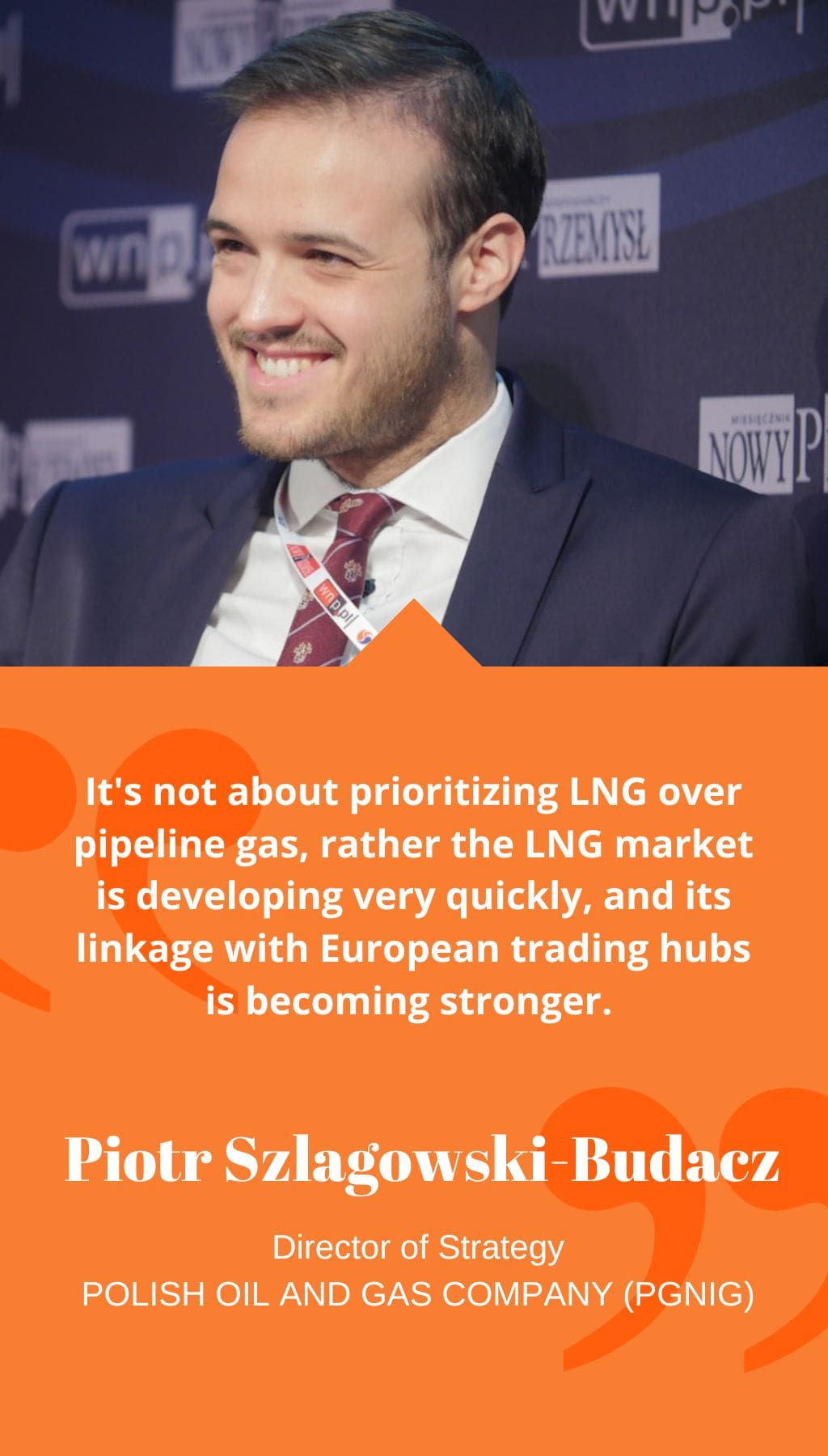
- Poland | 24 August 2020

PGNiG recently won a case against Gazprom in an international arbitration court. Can you explain what led to this dispute in the first place and how PGNiG responded?
Our response to the issue was twofold. Firstly, we filed a motion for arbitration to adapt long-term contractual rules to changing market conditions. Secondly, we sought to build a different strategic position for PGNiG to depart from a vulnerable position as a partner in the equation. We diversified our portfolio by undertaking projects like the LNG terminal in Świnoujście and the Baltic Pipe, which enabled us to strategically build up our position for future negotiations with all partners.
Who do you think will be the main partners for gas imports for Poland in the future?
It’s too early to say for certain, but we’re likely to seek a diversified portfolio. For LNG, we have partners from Qatar and the US, as well as European counterparts that we trade with on shorter terms. We’ll likely adopt a similar approach for pipeline gas imports.
LNG imports have increased noticeably. Is this a direction that PGNiG is prioritizing now?
It’s not about prioritizing LNG over pipeline gas, rather the LNG market is developing very quickly, and its linkage with European trading hubs is becoming stronger. This trend is not unique to Poland but is a general trend in Europe. We’re benefiting significantly from this market change.
What specific green technologies is PGNiG exploring?
Wind and PVs are obvious choices. However, we could have a particular competitive advantage in biogas, biomethane, other green gases, and hydrogen. These technologies are relatively close to what we have now, so we can develop them by building on our experience. Additionally, they can capitalize on the infrastructure we already have in place, especially the distribution network.
How has the outbreak of COVID-19 affected PGNiG’s business?
Luckily, it hasn’t caused too much disturbance for us. Our asset portfolio is well-balanced, with gas distribution and electricity generation stabilizing us during difficult times in the oil market. We also have our own domestic and foreign upstream production, which benefits greatly when oil and gas prices are high, and a strong position in trading and retail, which benefits when prices are low. These segments are hedging each other. While we monitor our assets closely, we don’t see the need for investment cuts at the moment.
Have work conditions changed for PGNiG in any way due to COVID-19?
We operate critical infrastructure, so supporting it is our main task now. It’s important to emphasize that we were not caught unprepared for this challenge, as we had established procedures in place. To the extent possible, we have switched to a work from home mode. This shift has gone surprisingly smoothly and may speed up digitization of our operations.














